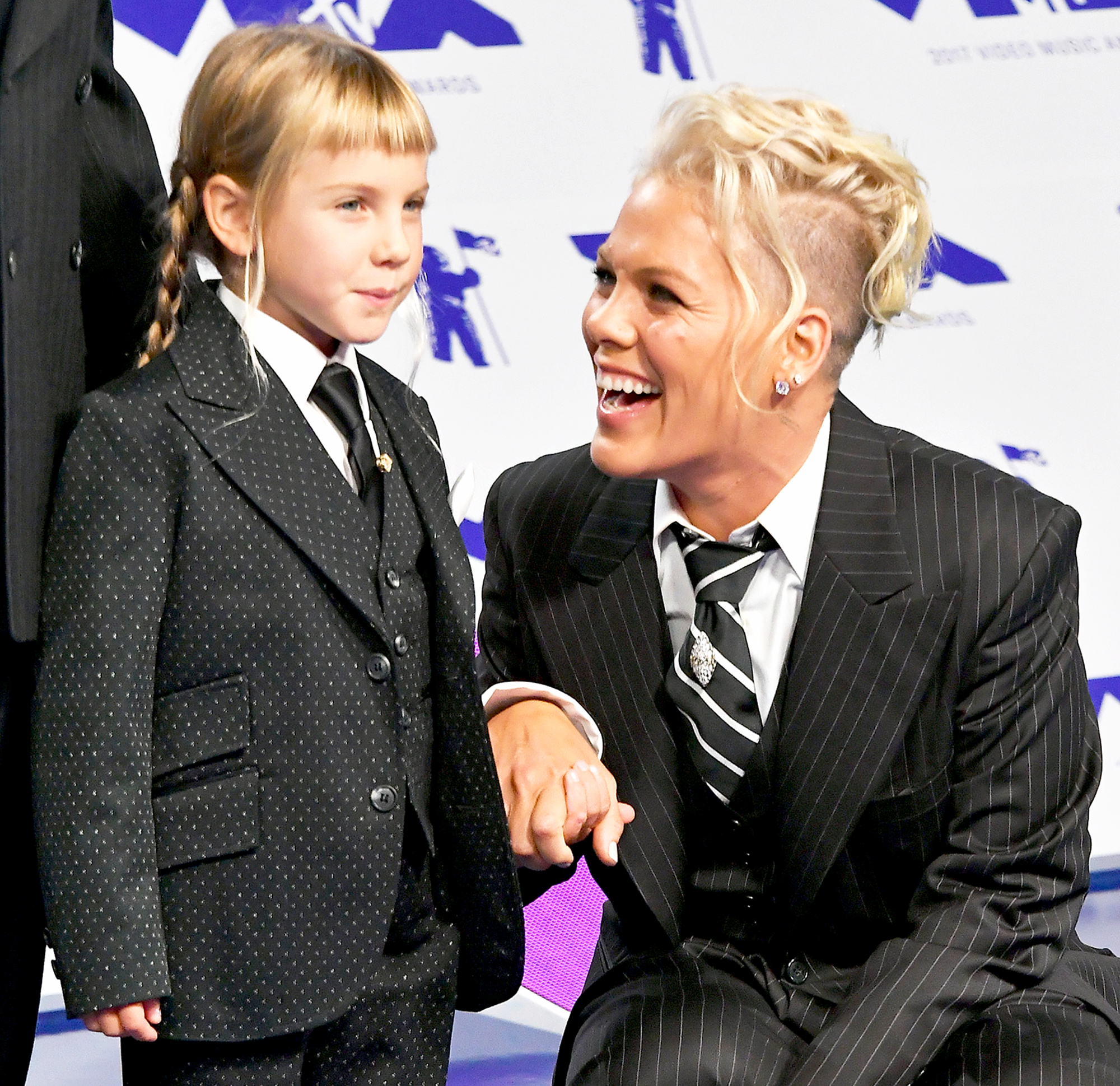What is a ‘Theyby?’ Gender Creative Parenting is the Latest Trend

Another day and another new, and potentially controversial, parenting trend. This time the trend is called ‘Gender Creative Parenting,’ which is a parenting style that’s becoming increasingly discussed. Basically, many new parents are now referring to their newborns and toddlers as Theyby.
Parents are making the choice to withhold their child’s gender, and refer to their children as, ‘their, them, they,’ or just by the first letter of their child’s name. Thus, the short-form ‘Theyby’ (Get it? No gender + baby = Theyby)
Last week, The New York Times wrote a piece about a couple and their decision to withhold their child’s gender, even from family and friends. The couple refers to their baby, Zoomer, as ‘their,’ ‘them,’ or ‘they,’ and sometimes by the letter of their first name, ‘Z.’ (Notice no ‘her‘ or ‘his‘ name.)
Hey, no judgment here. Just a lot of questions! First, does that mean no more baby reveal parties, which I love? (I kid.) Can we no longer ask a pregnant person the gender of their baby? I also kid. But I don’t doubt that one day, soon enough, I’ll be corrected when I say something like, “What a beautiful baby girl,” or, “What a handsome boy!” to a millennial on the street, only to hear, “We practice gender creative parenting, so we don’t use the word girl or boy,” to which I’ll then have to respond with, “Oops, Sorry! They are a very beautiful baby,” which doesn’t exactly roll off the tongue, but never mind.
I’m sure this couple has heard it all and, fortunately, are kind and sensitive enough to explain what exactly Gender Creative Parenting is on their website. The Utah-based family are dedicated to raising a theyby and using gender-neutral terms when it comes to their two year-old. “We didn’t assign a gender to Zoomer, we don’t disclose their sex to people who don’t need to know, and we use gender-neutral pronouns for Zoomer (they/them/their),” mom Kyl explained on Instagram.
Like anything to do with parenting, this couple has been subject to both support and criticism. “Please — this is just too far now,” one commenter said. Others said things such as, “Hey, your baby. Your choice.” Zoomer’s parents believe that Zoomer is likely to “choose a gender by the time they are three or four.”
Even celebrities are raising their children this way. One of my all-time favourite musicians and performers, Pink, recently said that she’s “intent on raising her daughter Willow as gender neutral, allowing her to make free choices that aren’t dictated by what society states women should or shouldn’t do.” She is quoted as saying, “We are a very label-less household.” She also praised a school for supporting gender-neutral approaches. When the school posted a sign on a bathroom outside of a kindergarten room that said “Gender-Neutral – anybody” Pink took a photo of it and wrote, “Progress” and also said “I thought that was awesome. I love that kids are having this conversation.”

Pink is one parent practicing Gender Creative Parenting.
I agree that kids, parents, teachers, everyone should be having discussions about inclusion. I also think that this type of parenting is a learning curve, for those of us with older kids. I also think one would have to be very, very attentive and cautious to make sure they don’t use a pronoun. Wouldn’t you find this incredibly hard? I think I would.
After so many years of parenting, I’m not sure I could re-train myself to stop using pronouns like ‘his’ and ‘she’. I can’t imagine writing a note to my daughter’s teacher, saying, “They will not be in school today.” Or, telling my son’s friend’s mother that, “Sure they can come play. But we use gender-neutral terms, so call my theyby just by the letter of their first name.” That’s not to say I disagree with this way of parenting. It seems to work for this family, who obviously love their theyby (I can’t get enough of this word!)
I’m sure if I ever unknowingly met a theyby I would slip, and say something like, “She’s so cute!” or “What a handsome devil!” which is exactly what this couple wants to avoid.
But even the parents of Zoomer make mistakes, and Z’s mother seems pretty understanding when people don’t get it. “I call them ‘slips’ when I use a gendered pronoun for Zoomer, and, yes, I’ve certainly done it, although not nearly as much as I thought I might…it has gotten less frequent as Z gets older and I think of Zoomer as they/them, like any other parent would think of their daughter like ‘she’ or son like ‘he’ and wouldn’t be very likely to slip and use a different pronoun for them.”
And, yes, she says, different situations call for different reactions. For example, if a waiter asks, “Would she like some water?” Or, “What can I get him,” Kyl doesn’t correct them, which I kind of admire, because it doesn’t make the other person, who doesn’t know what style of parenting you are following, feel badly. “I don’t say, ‘Actually, we use gender-neutral pronouns.’ I just say, ‘Yes please,’ or, ‘They will have pancakes.’” But when it comes to doctors or talking to others at a birthday party, for example, she does respond with, “We use gender-neutral pronouns for Zoomer, like ‘they, them, and their’ or you can call them Z or Zoomer.”
Even her/their relatives are on board (you can teach a old dog new tricks!) “I actually found it endearing in the beginning, seeing our family try so hard to use gender neutral pronouns and it taking time to get used to. The first time I saw my parents write ‘they’ or ‘their’ for Z in a text or holiday card made me really happy and proud and it felt special that they were consciously making efforts to use gender neutral pronouns for Z. It just felt sweet and still does,” she says.
So what really is the point behind Gender Creative Parenting? As Kyl explains, “Gender Creative Parenting felt like the best way we could mitigate sexism and gendered microagressions against our child. I just could not imagine raising a ‘boy’ or a ‘girl’ how our culture expects us to raise boys and girls, I want to change the expectation and norm for how boys and girls are raised. I see way too many of the connections between childhood gender socialization and so many of the gender disparities we see in adulthood, whether health disparities, political disparities, STEM disparities, the gender wage gap, parenting inequities, homophobia and transphobia, rape culture, male violence, etc. There was just no way I was going to have a baby, and label them as “this” or “that” and invite the world to perpetuate gender stereotypes on to them.”
I get her point and she’s very well spoken and who, in this day and age, would agree with gender disparities, wage gaps, and transphobia? But I can’t help but ask, in 2018, do we really need to make a name for this style of parenting? I’m not going to judge, especially since this baby seems happy and healthy and, it’s not my kid. Still, my son’s favourite colour is pink and he will play house with dolls before wanting to play trucks. My daughter likes her hair short, she refuses to get earrings and she plays hockey. They both have friends with gay parents. So does this type of parenting really need a name? Or is it, in this day and age, just called…”parenting.”
What are your thoughts? Is this something you would practice?

















Nope. This is too far. Zoomer is a ridiculous name, but that’s beyond the point: rather than calling a child by their name, they suggest you just use their first initial? How does that have anything to do with gender identity?
Also, P!nk doesn’t practice gender-neutral parenting: she happily refers to Willow as a girl and Jameson as a boy. There’s a huge difference between refusing to be “trapped” by gender roles (that girls wear pink, dresses and don’t get dirty and boys wear blue, jeans and are expected to get dirty) and refusing to acknowledge that your child is a human being with genitalia that “fits” with one of two genders. You can choose gender-neutral names (Zoomer is a great dog name) and buy clothes that fit and toys that your kid likes, but you can’t really avoid the realities that some humans have a penis and some don’t. Kids like to belong, and be part of a group, and unless you happen to run in circles where everyone does the same, a “genderless” kid is more likely to be an outsider and not belong to any group. I really question whether this extreme view is healthy for the children, because it doesn’t sound like it would be.
I have 2 daughters. I call them my girls, she, her. Yes the label of female. BUT….I also make it very clear to them that everyone is different, boy can marry boys, girls to girls, and both can like/love both. Some people like their hair short, others like it long, it’s a personal choice. Everybody is their own individual and we embrace that, because the world is full with individuals….no 2 people are exactly alike…not even twins. I personally don’t agree with gender neutral terms. As a young baby/child we are defined from what genilalia are at birth. Boys have a penis, girls a vagina. How each person feels they are may differ, and that’s ok. But raising a child with ‘no gender’ may confuse them farther. Like I said…..we are all different.